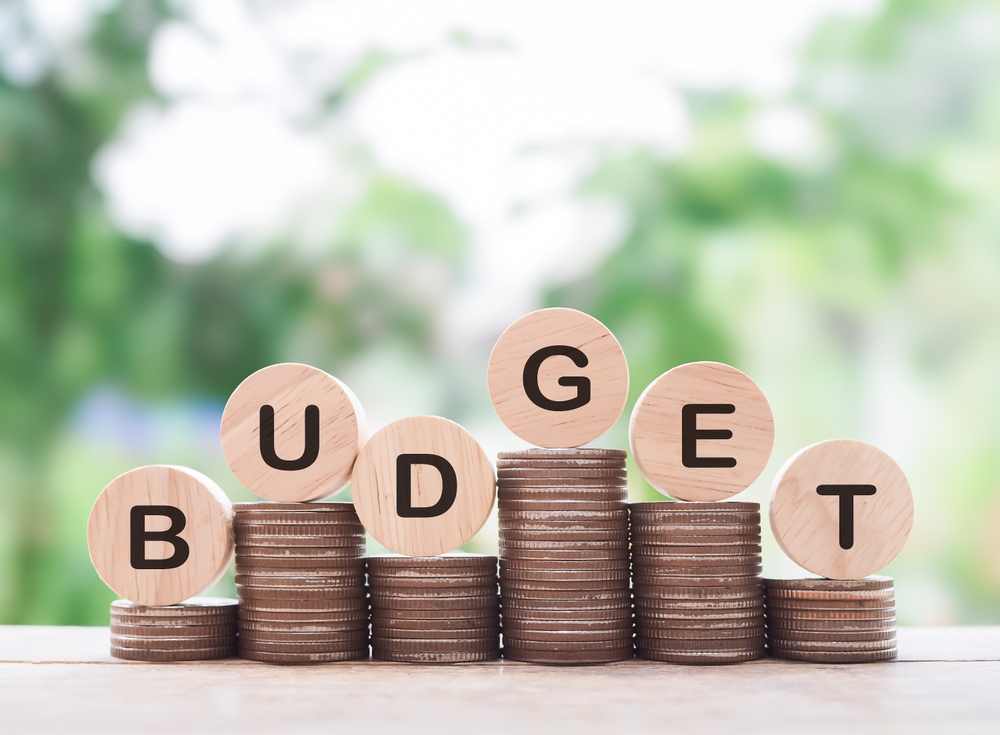Student loans were supposed to be the gateway to a better life. Instead, for millions, they’ve become a lifelong financial trap disguised as “an investment in your future.” The numbers don’t lie: soaring interest rates, predatory lending practices, and the rising cost of college have created a debt crisis that’s crushing entire generations. Even smart, financially responsible people are stuck paying off balances that barely budge year after year.
If you’ve ever felt like you were duped into signing your financial future away at 18, you’re not wrong. Here are 13 reasons student loans feel like a scam—and what you can actually do to pay them off faster without losing your mind (or your paycheck).
1. Make Extra Payments Whenever You Can

One effective way to pay off your student loans faster is to make extra payments. It may sound simple, but every little bit counts. If you can, try to make bi-weekly payments instead of monthly ones. This approach can reduce your interest over time and help you pay down the principal quicker. According to NerdWallet, even small additional amounts can make a big impact in the long run. Consider allocating any work bonuses, tax refunds, or unexpected windfalls towards your student loan payments. It’s tempting to splurge on something fun, but think about the long-term benefits of being debt-free.
Make sure to specify that these extra payments should go directly towards the principal of your loan. This can reduce the overall amount of interest you’ll need to pay in the future. However, it’s important to check with your loan servicer to ensure that your extra payments are applied correctly. By directly reducing the principal, you’re not just shrinking the balance; you’re also minimizing the interest that accrues. It’s a double win! Setting up automatic payments can also help you stay consistent and avoid any late fees. The key is to plan financially and stick to it.
2. Refinance If You Have A Good Credit Score

Refinancing your student loans could be a game-changer, especially if you have a solid credit score. It involves replacing your current loan with a new one, ideally with a lower interest rate. According to Forbes, this move could save you thousands in interest over the life of your loan. However, refinancing isn’t for everyone. It’s important to understand that refinancing federal loans means giving up certain benefits like income-driven repayment plans and potential loan forgiveness.
If you decide to go this route, shop around for the best rates and terms. Banks, credit unions, and online lenders often have different offers, so it’s worth doing some comparison. Make sure to read the fine print and understand the terms before signing anything. Also, consider the length of the loan term; while a longer term might reduce your monthly payment, it could mean paying more interest overall. Refinancing can be a powerful tool, but only if it aligns with your financial goals and situation.
3. Take Advantage Of Employer Repayment Assistance Programs

Did you know some companies offer student loan repayment assistance as a perk? It’s becoming increasingly popular as employers look for ways to attract top talent. According to SHRM, more businesses are including this benefit in their compensation packages. It’s worth checking if your current employer offers such a program or if prospective employers do. Although it might not cover all your loan costs, every bit helps and can ease your financial burden significantly.
If your employer offers this benefit, make sure you understand how it works. Some programs may have a cap on the amount they’ll cover, while others may require you to stay with the company for a certain period. This is essentially free money to help tackle your student loans, so take advantage of it if it’s available! It’s also a good idea to keep an eye on any legislative changes, as more government initiatives are introduced to address the student debt crisis. Having this additional support can make a big difference in your loan repayment journey.
4. Budget Like A Pro And Cut Unnecessary Expenses

Creating a detailed budget is crucial when trying to pay off student loans ahead of schedule. This means understanding where every dollar goes and finding areas to cut back. It might be time to say goodbye to that daily coffee shop habit or those spontaneous online purchases. These small sacrifices can add up to significant savings over time. By reallocating these savings towards your student loan payments, you’ll be able to chip away at your debt faster. Embrace budgeting tools and apps to track your spending habits and identify potential savings.
Living frugally doesn’t mean depriving yourself of all pleasures. It’s about making smarter choices and prioritizing long-term financial freedom over short-term indulgences. Consider cooking more meals at home, hosting movie nights instead of going out, or finding free hobbies. By doing so, you’ll be amazed at how much extra money can be directed towards your loans. Remember, every penny counts, and the more you can pay beyond the minimum, the faster you’ll clear that debt.
5. Use The Debt Avalanche Or Snowball Method

If you have multiple loans, using structured repayment methods like the debt avalanche or snowball technique can be beneficial. The debt avalanche method focuses on paying off loans with the highest interest rates first, saving you money in the long run. Alternatively, the snowball method emphasizes paying off the smallest debts first, giving you quick wins and motivation to tackle larger debts. Both methods have their merits, and the choice depends on your financial situation and psychological preferences.
With the avalanche method, you’re minimizing the total interest paid, but it might take longer to see individual loans cleared. On the other hand, the snowball method can boost your morale as you quickly eliminate smaller debts, even if it might mean paying slightly more in interest over time. Consider your financial personality and what will keep you most motivated. Whichever method you choose, staying consistent is key. Over time, these methods can significantly accelerate your journey toward debt freedom.
6. Consider A Side Hustle To Increase Your Income

In today’s gig economy, side hustles are more accessible than ever and can be a great way to boost your income. From freelance writing, tutoring, or driving for ride-sharing apps, there are countless opportunities to earn extra money. Think about your skills and passions when deciding on a side hustle. Not only can it provide financial benefits, but it could also be a fulfilling or even enjoyable way to spend your time. Dedicate the earnings from your side hustle specifically to your student loan payments to see progress faster.
Balancing a side hustle with your primary job can be challenging, so it’s important to manage your time effectively. Set clear boundaries to prevent burnout, and regularly evaluate if the extra work is worth the financial gain. Some side hustles may even have tax implications, so it’s wise to consult with a tax professional. Over time, the additional income can significantly reduce your loan balance, bringing you closer to financial freedom. Remember, every extra dollar you earn and apply to your debt makes a difference.
7. Look Into Student Loan Forgiveness Programs

Depending on your career field, you may be eligible for student loan forgiveness programs. These programs are often available to those in public service roles, such as teachers, nurses, or government employees. The Public Service Loan Forgiveness (PSLF) program, for instance, forgives the remaining balance on Direct Loans after you make 120 qualifying monthly payments while working full-time for a qualifying employer. It’s essential to do your research and understand the requirements, as eligibility can be strict.
While enrolling in a forgiveness program can be complex, the potential benefits are substantial. Keep in mind that some forgiveness may be considered taxable income, depending on the program. Therefore, it’s vital to plan accordingly for any tax implications. Regularly checking in with your loan servicer can help ensure you’re on track and meeting all necessary criteria. Loan forgiveness can significantly reduce your financial burden and is worth exploring if you meet the conditions.
8. Automate Payments To Avoid Late Fees And Lower Interest Rates

Automation can be a lifesaver when managing student loans, ensuring you never miss a payment. Many loan servicers offer interest rate discounts for setting up automatic payments, which might seem minor but can add up over time. By automating your payments, you eliminate the risk of incurring late fees and maintain a positive payment history. Consistency is key when reducing debt, and automating payments ensures you’re always on track.
Another benefit of automation is the peace of mind it provides. You won’t have to remember due dates or worry about missing a payment. Just make sure your bank account always has sufficient funds to cover the automated withdrawal. Setting up automation may take a bit of initial effort, but once in place, it’s a stress-free way to manage your repayment plan. Over time, these consistent on-time payments can help reduce your overall debt burden and speed up the repayment process.
9. Explore Income-Driven Repayment Plans

For those with federal student loans, income-driven repayment (IDR) plans can be a lifesaver if you’re struggling financially. These plans adjust your monthly payment based on your income and family size, often resulting in lower payments compared to the standard plan. Options like Income-Based Repayment (IBR) or Pay As You Earn (PAYE) can offer relief and make managing your loans more sustainable. It’s important to note that while these plans can extend your repayment period, they often lead to loan forgiveness after 20 to 25 years.
While IDR plans offer immediate relief, they may increase the total amount paid over the life of the loan due to accrued interest. It’s crucial to weigh the pros and cons and determine if this plan aligns with your long-term financial goals. Regularly recertifying your income and family size is necessary to maintain your eligibility for these programs. If you’re experiencing financial hardship, IDR plans can provide the breathing room you need to stay afloat while managing your student loans effectively.
10. Make Lump-Sum Payments When Possible

Whenever you come into extra money, consider making a lump-sum payment towards your student loans. This could be from a work bonus, tax return, or even a generous birthday gift. Lump-sum payments can significantly reduce your loan principal, ultimately lowering the interest you will pay. It’s a powerful strategy to accelerate your loan repayment schedule. Before making a lump-sum payment, confirm with your loan servicer that it will be applied directly to the principal.
Strategically planning for lump-sum payments can make a considerable dent in your student loan balance. Even if you can’t make large payments regularly, a few well-placed lump sums can keep your repayment plan on track. Remember to continue making regular payments, as lump sums are meant to be additional contributions to your debt. Over time, these strategic payments can bring you closer to the goal of being debt-free and financially independent.
11. Participate In Loan Repayment Assistance Programs

Apart from employer assistance, look into other loan repayment assistance programs (LRAPs) that might be available to you. These programs can be offered by state governments, non-profit organizations, or specific industries aimed at helping professionals manage their student debt. Eligibility criteria vary, so it’s essential to research and find programs that fit your situation. Sometimes, these programs require a commitment to work in high-need areas or specific fields.
Participating in an LRAP can significantly reduce your debt load if you qualify. It’s essential to fully understand the terms and obligations required to benefit from these programs. Some might require a multi-year commitment, so it’s a decision that should not be taken lightly. However, if you align with the program’s goals and requirements, it could be an effective way to tackle your student loans. Investigating these opportunities is worthwhile for professionals seeking financial relief.
12. Use Found Money Wisely

Found money refers to unexpected funds that come your way, like inheritance, gifts, or even small lottery wins. Instead of using this money for splurges, consider directing it towards your student loans. While the temptation to spend is real, thinking long-term and applying these funds to your debt can bring substantial benefits. Found money can make a significant impact on your loan balance when applied directly to the principal.
If you come across found money, take some time to consider the best use for it. While treating yourself is important, achieving financial freedom is an even greater reward. Discuss with a financial advisor if you’re unsure about how to allocate these funds effectively. By redirecting found money to your loans, you’re taking a proactive step towards a stronger financial future. It might not be glamorous, but it’s a decision you’ll thank yourself for in the long run.
13. Stay Informed And Seek Professional Advice

The landscape of student loan repayment can be complex and ever-changing. It’s crucial to stay informed about new policies, programs, and strategies that could benefit you. Regularly check reputable financial news sources or consult a financial advisor specializing in student loans. They can provide personalized advice and help you navigate your options effectively. Sometimes, just knowing about a new program or regulation can make a significant difference in your repayment journey.
Seeking professional advice can also prevent costly mistakes and ensure you’re making the best decisions for your financial situation. A financial advisor can offer insights into tax implications, refinancing options, and long-term financial planning. They can also help you set realistic goals and keep you accountable. While it may require an investment of time or money, the guidance you receive can be invaluable in achieving a debt-free life. Stay proactive, informed, and motivated as you work towards paying off your student loans.
This article is for informational purposes only and should not be construed as financial advice. Consult a financial professional before making investment or other financial decisions. The author and publisher make no warranties of any kind.







